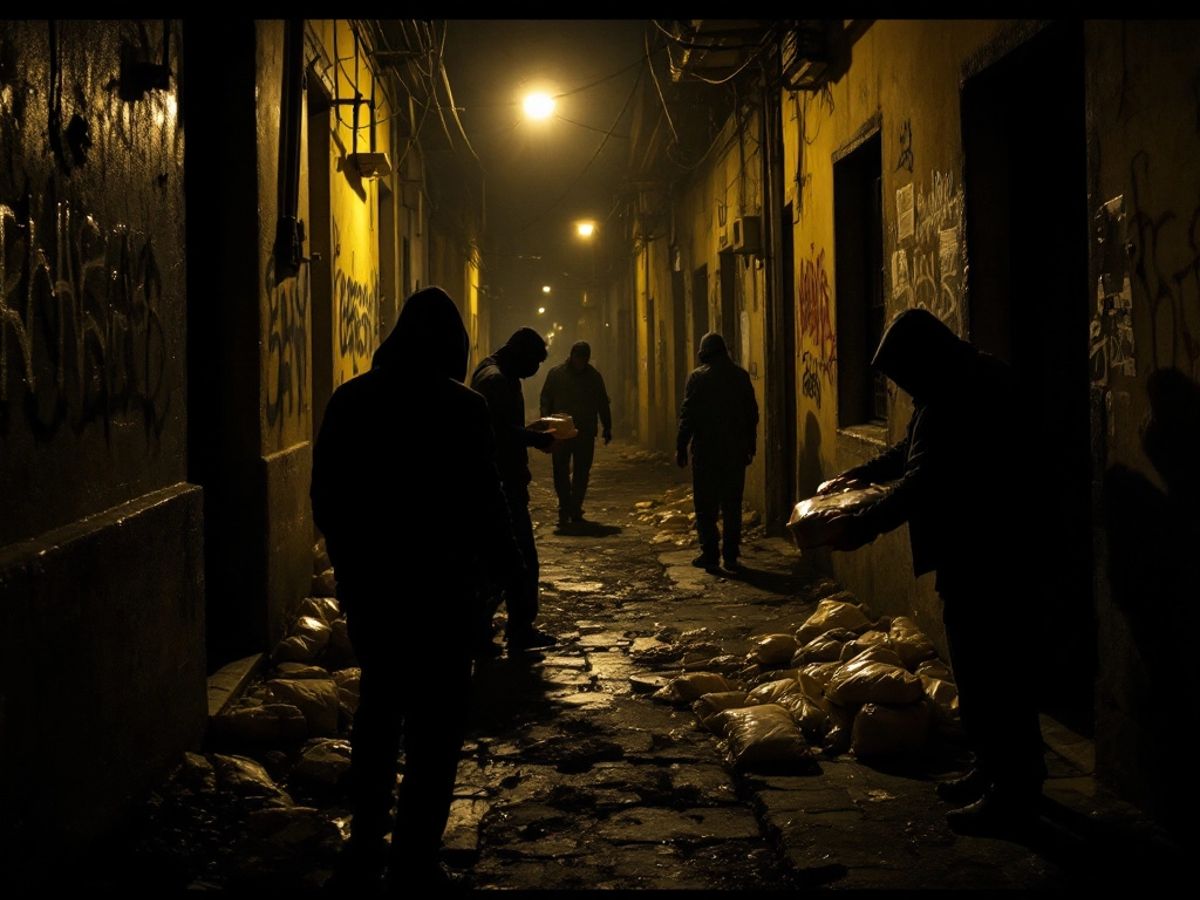In a startling revelation, journalist José Luis Montenegro has posited that a new alliance is forming in Mexico’s drug trade, involving the Jalisco New Generation Cartel (CJNG), the Chapitos, and the ruling political party, Morena. This coalition could reshape the landscape of narcotrafficking in the country, potentially leading to a new era of organized crime and political complicity.
Key Takeaways
- Emerging Alliance: The Chapitos and CJNG are reportedly joining forces, aiming to dominate the drug trade in Mexico.
- Political Connections: The ruling party, Morena, is implicated in this alliance, raising concerns about political corruption and complicity.
- Historical Context: This new coalition mirrors the infamous Federation led by Joaquín "El Chapo" Guzmán, suggesting a return to a more organized and powerful drug trafficking structure.
The Formation of a New Federation
Montenegro’s analysis suggests that the alliance between the Chapitos, led by Iván Archivaldo Guzmán Salazar, and the CJNG could lead to the establishment of a new Federation. This would not only involve military cooperation against rival factions but also the sharing of drug trafficking routes and business operations.
The Chapitos have been embroiled in conflicts with other factions, particularly against El Mayito Flaco and the families aligned with the Sinaloa Cartel. By uniting with the CJNG, they aim to consolidate power and eliminate competition.
Political Implications
The involvement of Morena in this alliance raises significant concerns. Currently, Morena governs over 70% of Mexico, with numerous state governors and legislators accused of having ties to organized crime. This connection suggests a potential political-criminal project that could further entrench corruption within the government.
Montenegro highlights that the success of Morena in various states often coincides with the influence of the Sinaloa Cartel, indicating a troubling relationship between political power and drug trafficking.
The Role of Special Forces
Reports indicate that the alliance may be referred to as "Fuerzas Especiales Unidas" (United Special Forces). Their tactical uniforms reportedly feature symbols representing both the Chapitos and the CJNG, signifying a formalized partnership.
If this alliance is confirmed, its reach could extend both nationally and internationally, allowing them to eliminate rival cartels and control key territories across Mexico, including Chiapas, Zacatecas, and Baja California. This would enable them to dominate the drug trade, trafficking substances like methamphetamine, cocaine, and fentanyl across the U.S. border.
Historical Precedents
The strategy of utilizing state resources for drug trafficking is not new in Mexico. Historical instances, such as the control of the Mexico City International Airport by the Sinaloa Cartel, illustrate the deep-rooted connections between organized crime and government institutions.
Notable Political Figures
Several politicians have come under scrutiny for their alleged connections to the drug trade, including:
- Rubén Rocha Moya: Governor of Sinaloa, accused of supporting the Chapitos.
- Alam Nidia Tapia Quintero: Newly elected official with familial ties to the Sinaloa Cartel.
- José Ramón Enríquez Herrera: Senator linked to organized crime through past meetings.
- Mara Lezama: Governor of Quintana Roo, alleged to have negotiated with the CJNG.
These connections highlight the pervasive influence of drug cartels within the political landscape of Mexico, complicating efforts to combat organized crime.
Conclusion
The potential alliance between the CJNG, Chapitos, and Morena could signify a new chapter in Mexico’s ongoing battle with narcotrafficking. As these entities consolidate power, the implications for governance, public safety, and the rule of law could be profound, necessitating urgent attention from both national and international authorities.






